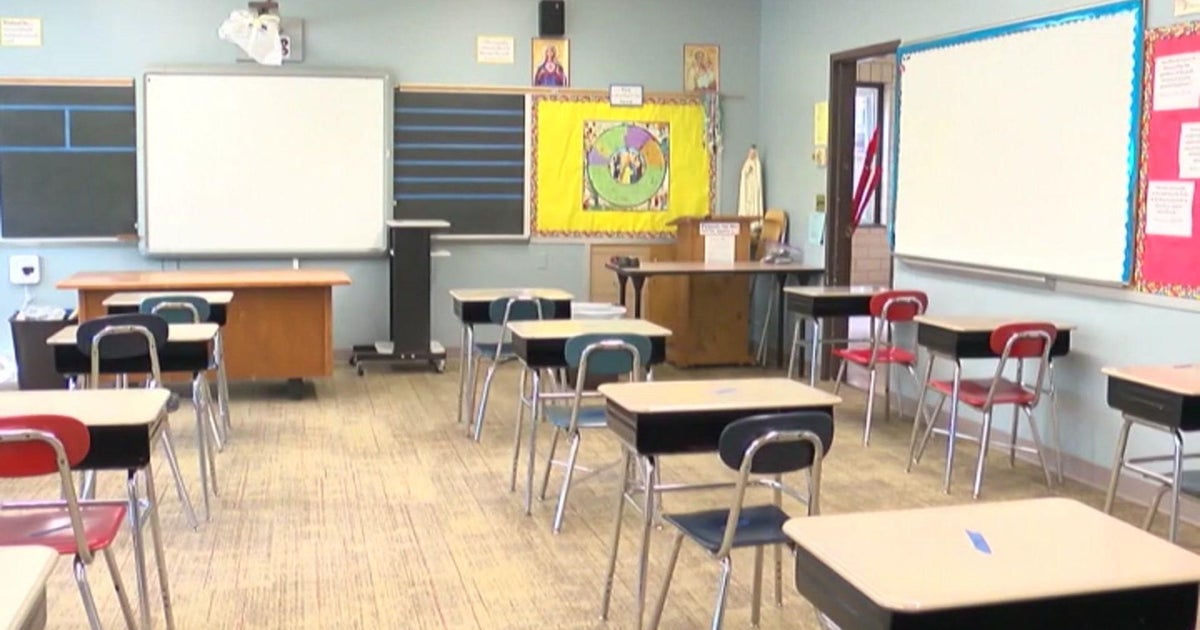Poll: American Families Jumping Hurdles To Feed Families & Overcome Food Challenges
WASHINGTON (CBSDFW.COM/AP) — Many Texans and people across the country have struggled to feed their families during the pandemic and say they have had difficulty figuring out how to get help and had trouble finding healthy foods they can afford.
A poll from Impact Genome and the NORC Center for Public Affairs Research finds 23% of Americans say they have not been able to get enough to eat or the kinds of foods they want. Most of those facing food challenges enrolled in a government or nonprofit food assistance program in the past year, but 58% still had difficulty accessing at least one service.
And 21% of adults facing challenges meeting their food needs were unable to access any assistance at all. The most common challenge to those in need was a basic lack of awareness of eligibility for both government and nonprofit services.
The poll results paint an overall picture of a country where hundreds of thousands of households found themselves suddenly plunged into food insecurity due to the economic disruption of the COVID-19 pandemic. They often found themselves navigating the intimidating bureaucracy of government assistance programs and with limited knowledge of local food banks or other charitable options available.
Black and Hispanic Americans, Americans living below the federal poverty line and younger adults are especially likely to face food challenges, according to the poll.
Americans who have a hard time affording food also feel less confident than others about their ability to get healthy food. Just 27% say they are "very" or "extremely" confident, compared with 87% of those who do not face food challenges.
Even those who didn't lose income during the pandemic find themselves stretching their food dollars at the end of the month. Trelecia Mornes of Fort Worth, Texas, works, as a telephone customer service representative, so she was able to work from home without interruption.
She makes too much money to qualify for SNAP, but not enough to easily feed the family.
She decided to do distance learning with her three children home because of fears about COVID-19 outbreaks in the schools, so that removed school lunches from the equation. Her work responsibilities prevent her from picking up free lunches offered by the school district. She takes care of her disabled brother, who lives with them and does receive SNAP benefits. But Mornes said that $284 a month "lasts about a week and a half."
They try to eat healthy, but budget considerations sometimes lead her to prioritize cost and longevity with "canned soups, maybe noodles — things that last and aren't so expensive," she said.
Radha Muthiah, president of the Capital Area Food Bank in Washington said the struggles reflected in the poll are evidence of a new phenomenon brought by the pandemic: Families with no experience with food insecurity are suddenly in need, without knowledge of charitable options or experience navigating government assistance programs.
"It's all new to them," she said. "Many individuals and families — especially those experiencing food insecurity for the first time — are unaware of their full range of options."
Many are leery of engaging directly with government programs such as SNAP and WIC — the parallel government food-assistance program that helps mothers and children. Muthiah said that reluctance often stems from either frustration with the paperwork or, among immigrant communities, fear of endangering their immigration status or green card applications.
According to the poll, about 1 in 8 Americans regularly get their food from convenience stores, which typically offer less nutritious food at higher prices. That experience is more common among Americans facing food challenges, with about 1 in 5 frequenting convenience stores.
The dependence on convenience stores is a particularly troubling dynamic, Muthiah said, because the options there are both more expensive and generally less nutritious. Part of the issue is simply habit, but a much larger problem is the lack of proper grocery stores in "food deserts" that exist in poorer parts of many cities.
"Sometimes they are the only quick efficient option for many people to get food," she said. "But they don't get the full range of what they need from a convenience store and that leads to a lot of negative health outcomes."
(© Copyright 2021 CBS Broadcasting Inc. All Rights Reserved. The Associated Press contributed to this report.)



